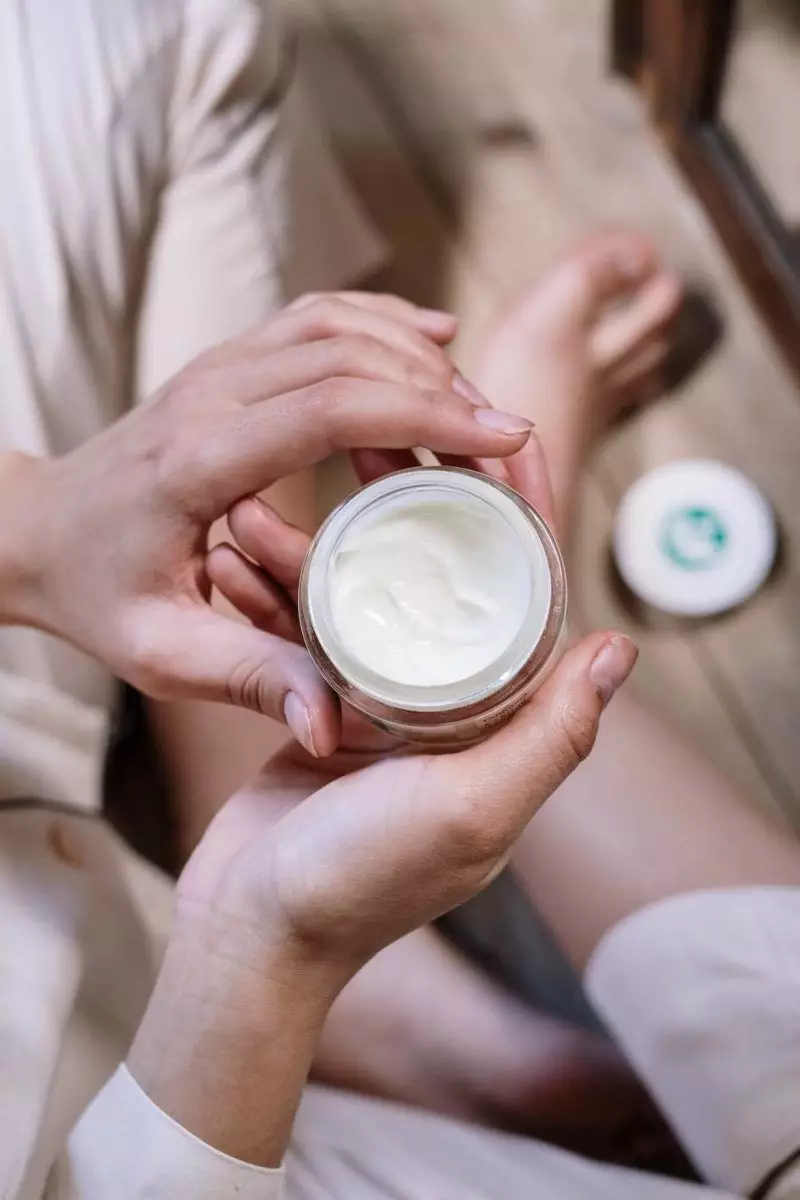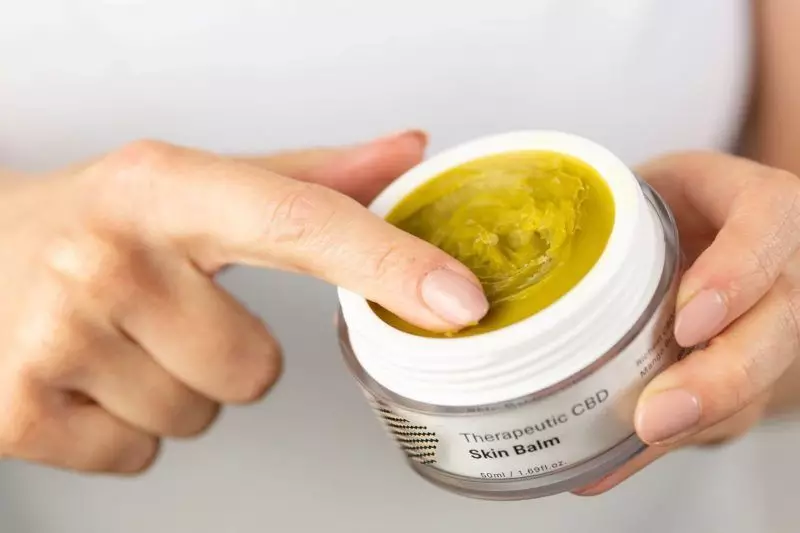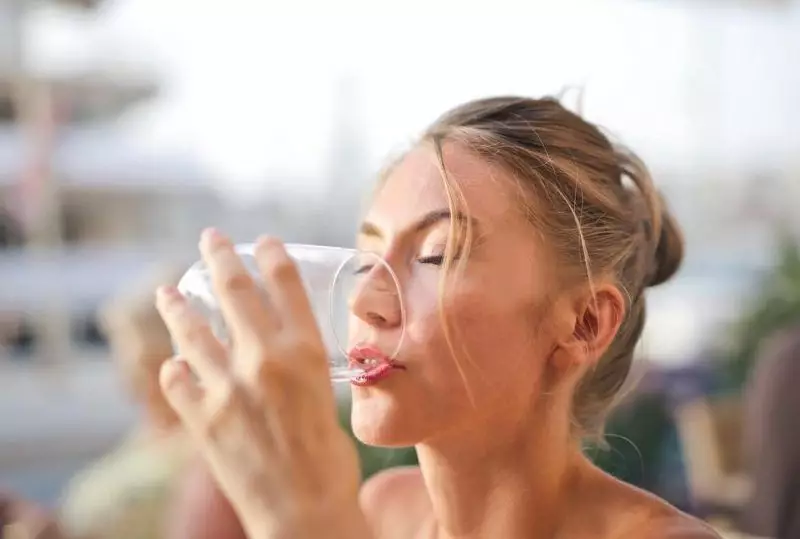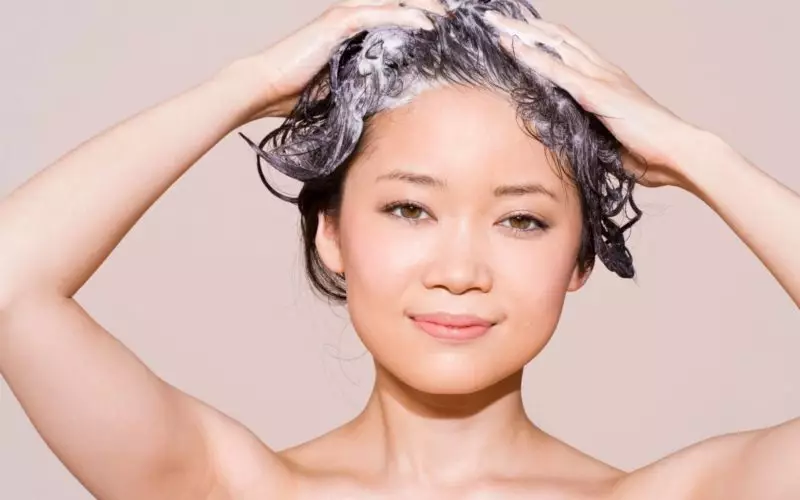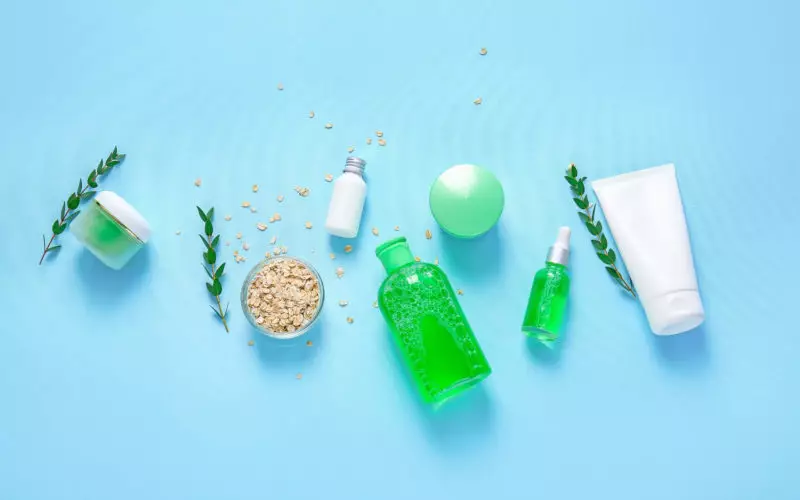
With time, the composition of your skin changes together with its physical appearance. Aging skin is often characterized with wrinkles, fine lines, uneven pigmentation (e.g., hyperpigmentation spots), dull appearance, thinness, looseness, slower natural exfoliation process (skin cells turnover).
But why does your skin age and what can you do to slow down this process?
This article will look into these two questions and will guide you through the answers!
Best anti-aging ingredients
How to deal with pigmentation, wrinkles, fine lines, dullness, and slow cell turnover? Using the right active ingredients can help your skin stay young and slow down the aging process. Some of the best cosmetic ingredients for aging skin include:
Ceramides
Skincare products with ceramides can strengthen the skin barrier, smooth the skin texture, and improve its hydration. They can also make the skin more resistant to free radicals damage, and this way, can limit the aging signs caused by external factors. [2]
Coenzyme Q10
This ingredient is an antioxidant that can limit the free radicals damage, and recover the antioxidant activity in the skin. This way, cosmetic products with coenzyme Q10 can improve the skin’s elasticity and suppleness, fade wrinkles and fine lines, and improve hydration. [3]
Alpha Hydroxy Acids (AHAs)
This type of acids include glycolic, lactic, hyaluronic, malic, and other (less popular) acids that, in higher concentrations, are used for chemical peels. When used in suitable concentrations, AHAs boost the production of new skin cells and stimulate the natural exfoliation process. This can help your skin fade different sighs of aging, including uneven pigmentation, dullness, and fine lines. Besides, alpha hydroxy acids can strengthen the skin barrier, moisturize the skin, and support the production of collagen. [4]
Warning: AHAs can cause irritation and photosensitivity, and should always be used with SPF (afterwards). It’s a good idea to have a consultation with your dermatologist before using AHAs. To know more about alpha hydroxy acids, check out our dedicated article!
Retinol
Retinol is basically a form of vitamin A. However, in suitable concentrations and when applied topically, it is an active ingredient that stimulates the cell turnover and supports the natural exfoliation process of the skin. Evidence suggests that certain formulations of retinol can fade fine lines and wrinkles, reduce hyperpigmentation and improve skin texture and smoothness [5] This way, retinol can make your skin appear younger, firmer, and healthier.
On the negative side, just like AHAs, topical use of retinol may cause irritation and photosensitivity, and should be used with SPF. Besides, too high concentrations of retinol can cause more damage to the skin than benefit it, so consultation with a dermatologist is recommendable before starting retinol treatment.
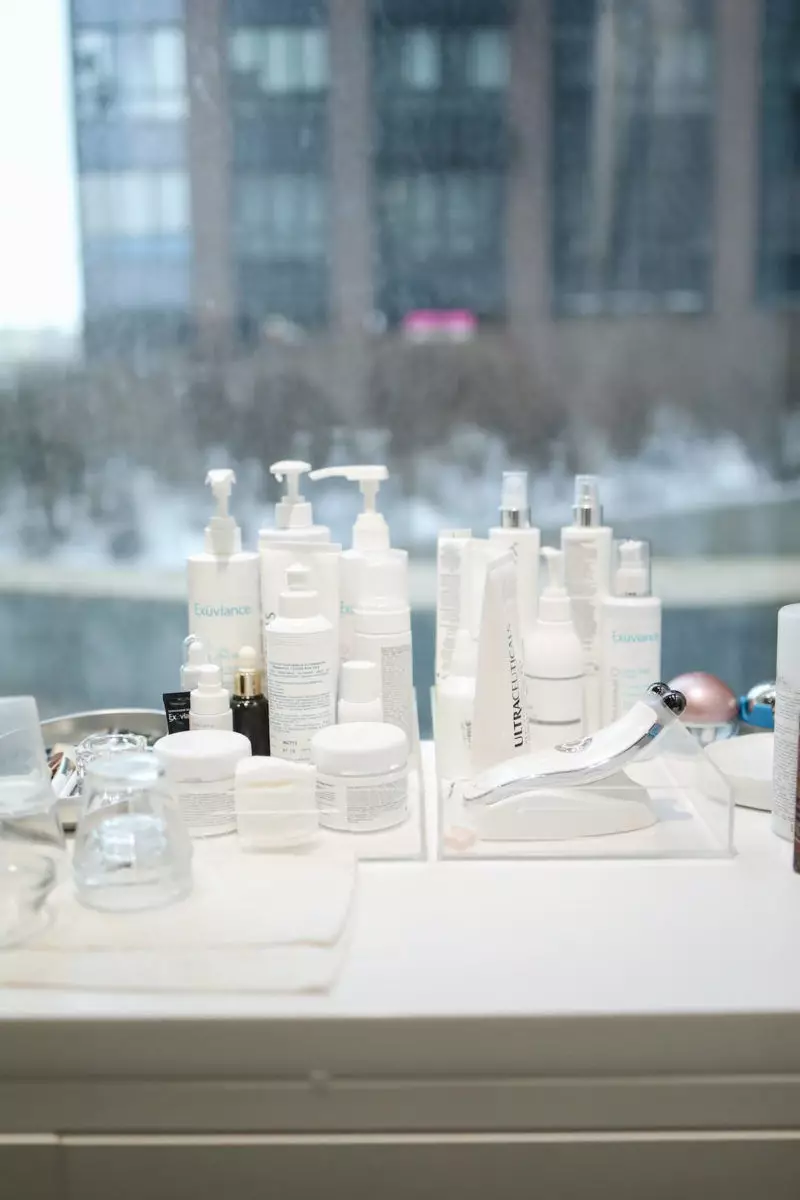
Vitamin C
Vitamin C is an antioxidant that reduced the skin impact and damage caused by free radicals. Besides this vitamin can stimulate the production of collagen, improve the natural photo-protection (protection from UV rays damage) and reduce uneven- or hyperpigmentation. This way, cosmetic products with vitamin C can improve the skin appearance, make it stronger and more elastic, and young-looking. [6]
Caffeine
When used topically, caffeine is easily absorbed by the skin. This cosmetic ingredient is not only used in cellulite creams, but also in antiaging skincare products. Caffeine acts as an antioxidant, reducing the skin damage caused by free radicals and improving the natural photoprotection of the skin (protection from UV rays). This way, cometic products containing caffeine formulations (often 3%) can significantly slow down the skin aging process. [7]
Niacinamide
Evidence suggests that niacinamide can have significant skin antiaging properties when applied topically. A study shows that 5% niacinamide concentration applied for 12 weeks can significantly improve skin elasticity, decrease fine lines and wrinkles, even out skin pigmentation, and fade skin yellowing. [8]
Resveratrol
Resveratrol is an antioxidant compound found in grape seeds. Evidence suggests its antiaging properties include maintaining healthy collagen and elastin fibers, improving elasticity, decreasing the oxidative stress caused by free radicals damage, and brightening the skin. This way, topically applied resveratrol formulations can slow down the aging process and even reverse some already appeared skin aging signs. [9]
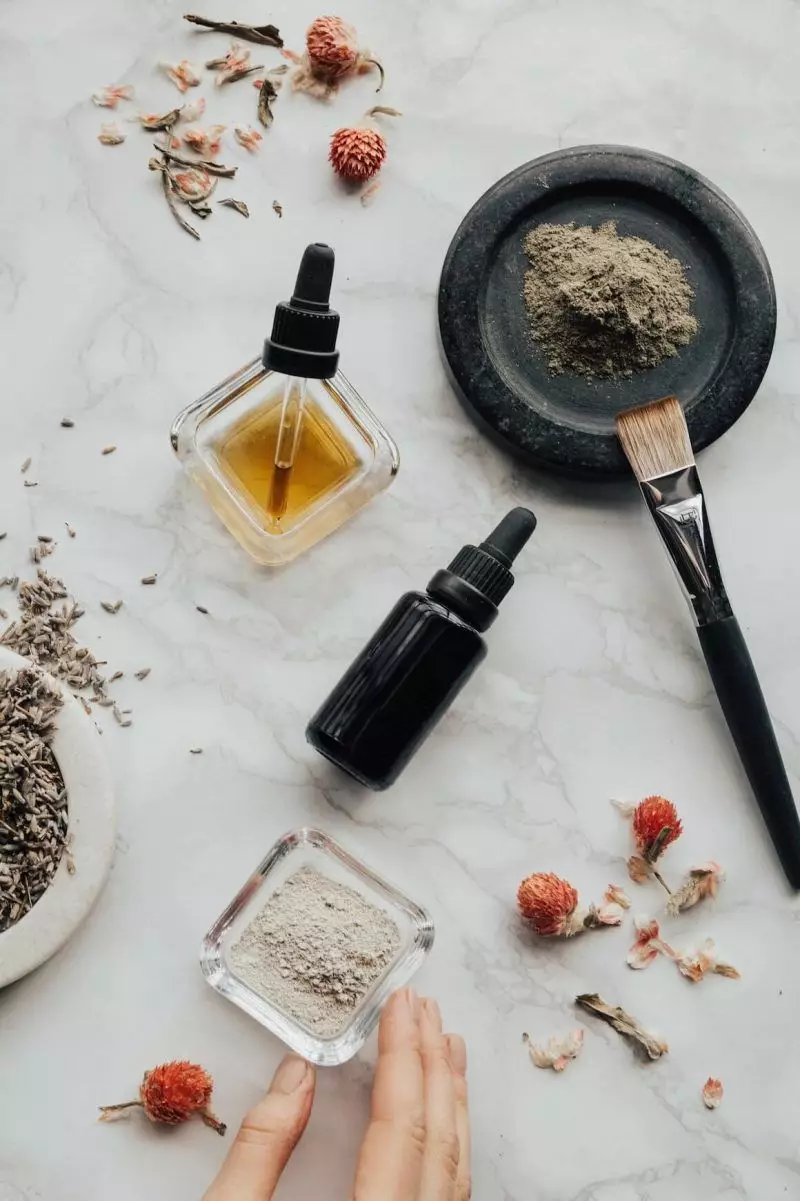
Ingredients to avoid on mature skin
There are some cosmetic ingredients that can damage the skin, contribute to lower production of collagen and elastin, pigmentation, dryness, and sensitivity. Some of the cosmetic ingredients that may lead to premature skin aging include:
Parabens
Parabens are cosmetic preservatives that protect your skincare products from bacterial growth and contamination. However, methylparaben (one of the most used types of parabens) was found to stimulate skin aging when exposed to sunlight. [10]
Drying alcohols
Even though some cosmetic alcohols can help the active ingredients in skincare (like acids and retinoids) to penetrate better into the skin, they can be significantly drying. In that sense, isopropyl, denatured alcohol, and aromatic alcohols (like benzyl and fragrance) can cause excessive drying and therefore, increase the risk of premature skin aging (as dry skin is more predisposed to developing aging signs).
Why does the skin age?
The first signs of skin aging appear around 30 years of age, and may become more pronounced with time. However, the progression of skin aging strongly depends on the genetic predisposition.
For example, some people may get their first wrinkles when they turn 25, while others can live wrinkle-free until 50. Another important factor that plays a role in predisposition to skin aging is skin type. Dry and sensitive skins are often more likely to develop signs of aging than oily skin. [1]
But mature skin is not only dependent on age and DNA! There are other factors that play a role in skin aging, some of them being:
- Skincare routine – Using products that benefit and suit your skin can slow down the skin aging process, and vice-versa: using cosmetics that cause damage to your skin can cause premature skin aging.
- Free radicals damage – Free radicals are internal and external factors that can damage the skin cells DNA and lead to early aging signs. Such factors may include malnutrition, smoking, pollution, climate, cosmetic ingredients, and sun radiation. Protecting your skin (e.g., using SPF) and diminishing the negative effect of free radicals (e.g., using antioxidant) could significantly delay skin aging.
That being said, the two essential fibers that make your skin look young are collagen and elastin. These two compounds are produced in the dermis (second skin layer) and are responsible for the elasticity, flexibility, suppleness, and firmness of the skin. The breakage of these fibers or the reduced production of these compounds triggers the appearance of skin aging skins (wrinkles, expression lines).
Evidence suggests that such breakdown of collagen and elastin can occur not only in the natural aging process (guided by genetic predisposition), but also due to the effect of free radicals on the skin [2].
